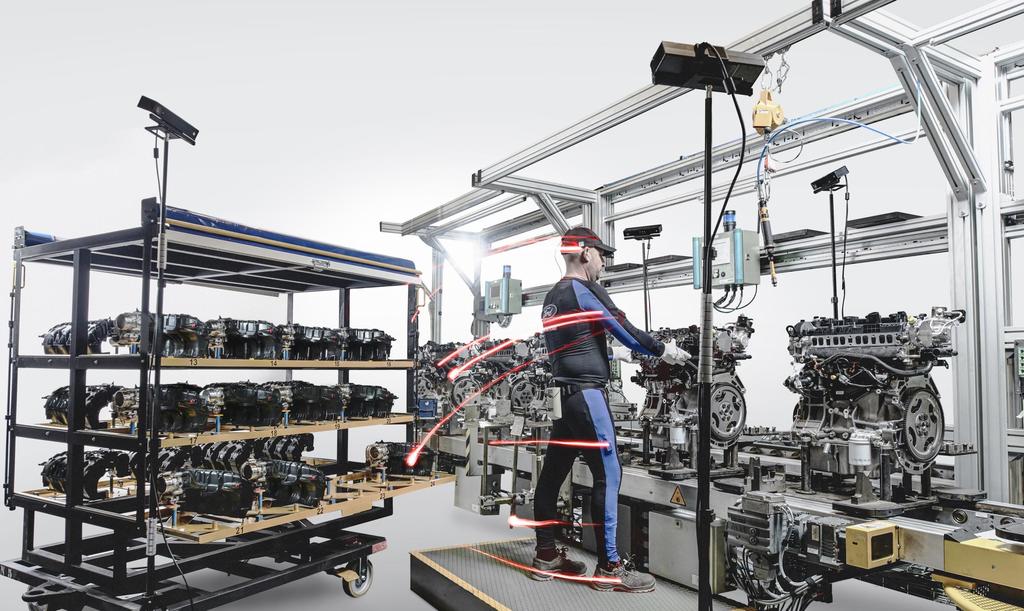During the early and mid-nineties, my cup of video game magazines overfloweth. The era of Super Nintendo and Sega Genesis, followed by the Nintendo 64, Sega Saturn, and the immortal PlayStation chronicled within their pages. With Neo Geo, 3DO, and virtual reality, it’s all the ingredients of a youth spent in fear of sunlight.
To put it another way, I had a good childhood.
Movement & Motion
Between the cheat codes and secret levels revealed in those back-in-the-day publications, articles about the video game industry’s new advancements where common. I remember seeing a football star hooked up to wires and pads to replicate his movements for a new Madden-ish game.
A similar approach for the assembly line will reduce physical stress for workers. Employees at Ford’s Valencia Engine Assembly Plant, in Spain, are using a special suit with body tracking technology. The idea came about after engineers attended a trade show demonstration on how robots mimic human movement. In sports, “player motion technology” records how athletes move, helping developers tailor those movements to the screen.
“It’s been proven on the sports field that with motion tracking technology, tiny adjustments to the way you move can have a huge benefit,” explained Javier Gisbert, Production Area Manager, Ford Valencia Engine Assembly Plant.
How It Works
The skin-tight suit has 15 tiny “movement tracking light sensors” connected to a wireless detection unit. The system tracks how the person’s head, neck, shoulders, and limbs move. Four specialized motion-tracking cameras, similar to those usually paired with computer game consoles record movement. The cameras, placed near the worker, produce a 3D skeletal character animation.
Ergonomists then use the data to help employees align their posture correctly, and ultimately, design workstations that better fit them. The pilot system, created by Ford and the Instituto Biomecánica de Valencia, involved 70 employees in 21 work areas. Ford is considering implementing the technology throughout the company’s other facilities.
“For our employees, changes made to work areas using similar technology can ultimately ensure that, even on a long day, they are able to work comfortably,” Gisbert added.
Ford’s Valencia Engine Assembly Plant builds the Transit Connect and 2.0-liter EcoBoost Duratec engines.
Carl Anthony is Managing Editor of Automoblog and resides in Detroit, Michigan. He studies mechanical engineering at Wayne State University, serves on the Board of Directors for the Ally Jolie Baldwin Foundation, and is a loyal Detroit Lions fan.
Photos, Video & Source: Ford Motor Company.




